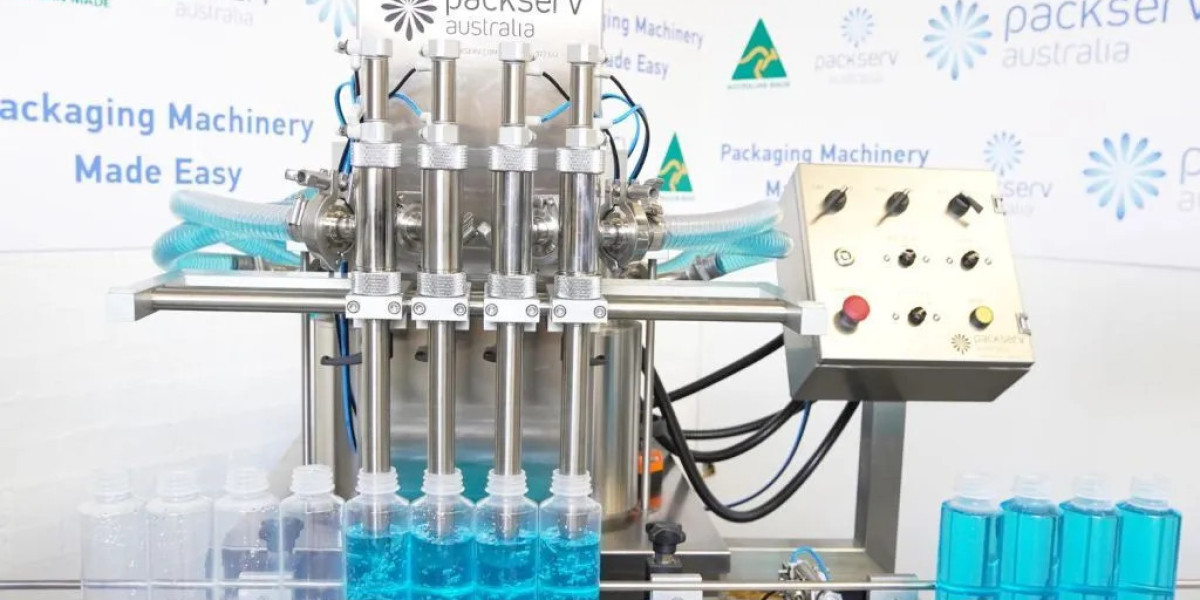For many small businesses and startups, the moment they outgrow manual packaging is a defining milestone. It’s a sign that their product is gaining traction, and the demand is exceeding what a small team can handle by hand. While a significant investment, the transition from manual labor to automated or semi-automated packaging machinery is not just about increasing speed. It’s a strategic move that enhances product quality, reduces costs, and positions a business for sustainable growth. This guide explores the essential types of packaging machinery, key considerations for first-time buyers, and a practical path to automation for small-scale operations.
The Clear Signs It's Time to Automate
Before you even begin looking at machines, it's crucial to recognize the pain points in your current manual process. The decision to invest in machinery is often driven by a combination of factors:
Scaling Production: You’re consistently struggling to keep up with order volume, especially during peak seasons or promotional periods.
Inconsistent Product Quality: Hand-filling and sealing can lead to variations in product weight, inconsistent seals, and messy labeling, which can damage your brand's reputation.
High Labor Costs and Inefficiency: A significant portion of your team's time is spent on repetitive, labor-intensive packaging tasks, which could be better used for more creative or customer-facing work.
Physical Strain on Workers: Repetitive manual tasks can lead to workplace injuries and a decline in employee morale.
Professionalism and Presentation: As you seek to enter retail markets or compete with larger brands, a polished, professional package becomes essential.
Recognizing these challenges is the first step toward finding a solution that fits your specific needs.
Essential Machinery for Your Startup
The world of packaging machinery is vast, but for small businesses, the focus should be on a few core, highly effective machines that provide the biggest return on investment.
1. Filling Machines If your product is a liquid, powder, or granule, a filling machine is often the first piece of equipment a business acquires.
Piston Fillers: Ideal for viscous liquids and pastes like sauces, honey, or lotions. They use a piston to draw in and dispense a precise, consistent volume.
Gravity Fillers: Best for free-flowing, low-viscosity liquids such as juices or water. They rely on gravity to fill containers to a specific level.
Auger Fillers: The go-to choice for powders and granular products like coffee, spices, and grains. An auger screw rotates to dispense a measured amount of product.
These machines drastically reduce product giveaway, ensuring consistent fills and saving money over time.
2. Sealing Machines A secure seal is vital for product integrity, safety, and shelf life.
Heat Sealers: The most common and affordable option, perfect for sealing plastic bags, pouches, or film. They come in manual, tabletop models that are easy to use.
Vacuum Sealers: Essential for food products, as they remove air from the package before sealing, which extends shelf life and prevents spoilage.
Capping Machines: For businesses using bottles or jars, a capping machine ensures lids are applied consistently and securely, preventing leaks.
3. Labeling Machines Proper labeling is crucial for branding, product information, and regulatory compliance. Manual labeling is notoriously slow and often leads to misaligned labels.
Manual Semi-Automatic Labelers: These machines are a great entry point. An operator manually places the product, and the machine applies the label precisely and quickly, ensuring a professional appearance every time.
4. Wrapping and Bundling Machines
Shrink Wrappers: Use heat to shrink a film tightly around a product or a group of products, creating a tamper-evident and protected package. Ideal for bundling items like multi-packs of beverages or small boxes.
Stretch Wrappers: While typically used for palletizing, smaller, semi-automatic models can be used to wrap larger individual products, securing them for transport.
Key Considerations Before You Invest
Before making a purchase, a strategic approach is key.
Total Cost of Ownership (TCO): Don't just look at the initial price tag. Consider maintenance costs, the price of consumables (film, labels), energy consumption, and the potential for downtime. A more expensive, durable machine with excellent local support and readily available spare parts may prove more cost-effective in the long run.
Level of Automation: Manual machines are the cheapest, but require the most labor. Semi-automatic machines require an operator but automate the most strenuous parts of the process, offering a great balance of cost and efficiency. Fully automatic machines are a large investment but are the ultimate solution for high-volume, continuous production.
Scalability and Flexibility: Choose a machine that can grow with you. Can it be upgraded later? Can it handle different product sizes or packaging materials? A versatile machine that can handle various product types or bag sizes is a huge asset.
Space and Layout: Take a realistic look at your workspace. Many compact, tabletop models are designed specifically for businesses with limited floor space. Ensure the machine fits not just physically, but also logically into your workflow.
The Path to Automation: A Practical Approach
You don't need to automate your entire production line overnight. A practical approach involves a phased implementation. Start by identifying your biggest bottleneck—is it filling, sealing, or labeling? Invest in a single semi-automatic machine for that task first. As your business grows and that machine begins to pay for itself, you can then consider adding another piece of equipment to the line. This incremental approach allows you to manage cash flow and test new technology without overcommitting.
In conclusion, packaging machinery is no longer exclusive to large corporations. For a small business or startup looking to scale, it’s an accessible and powerful tool. By carefully evaluating your needs, considering the long-term TCO, and adopting a smart, phased approach, you can make a strategic investment that not only increases your production capacity but also strengthens your brand, improves product quality, and sets the stage for future success.







